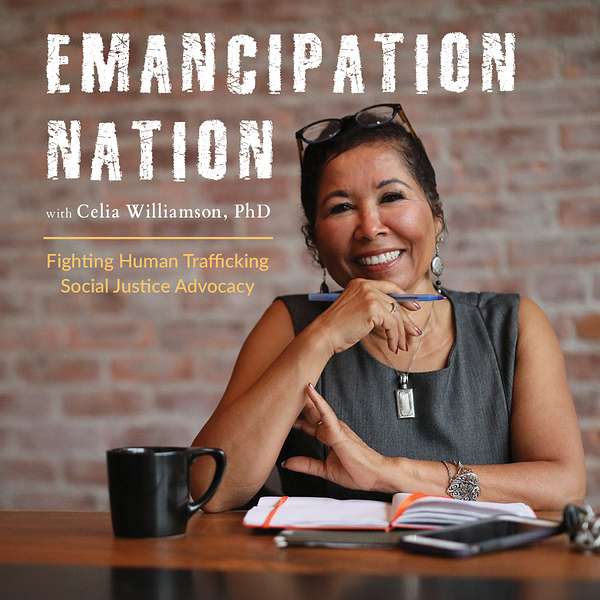
Emancipation Nation
Emancipation Nation (EN) Podcast is a podcast devoted to providing advocates, and those that want to be advocates, ways to competently fight various forms of human trafficking. EN will bring on guests that have been successful and will provide the audience with valuable, practical, best practice information that can be implemented.
Emancipation Nation
Episode 1: Emancipation Nation Episode 2 Survivor-Thriver Shamin Brown: Her Story of Transformation and the Need to Develop Authentic, Transparent Relationships with Survivors to do Effective Work
•
Celia Williamson, PhD
•
Season 1
•
Episode 1
A powerful podcast with Shamin Brown, artist, activist, and thriver who discusses her experience as a victim of sex trafficking and other abuses and provides human trafficking advocates with the message that above all else is the need to be nonjudgmental, authentic, and trust worthy and to have self-compassion while doing this work.
Powerful Take-Aways from the Podcast with Artist, Activist, Survivor and Thriver Shamin Brown
- Not having agency or control over your own body is often what happens to victims. Whenever possible, make sure survivors have agency, freedom, and self-determination during their healing and recovery experience.
- The individual experience of recovery is different for everyone.
- Fundamental healing comes about from people loving people.
- Survivors and other helpers have to learn to have self-compassion.
- There is a difference between shame vs guilt. Shame is never appropriate.
- In working with survivors, emphasize their worth along with their progress – worth comes first.
- Always value someone’s inherent worth.
- Our job is to show survivors love until they are able to give themselves the love they need.
- We have to earn the right to hear someone’s story and survivors deserve the right to share their story in a safe environment.
- Develop authentic, transparent relationships with survivors in order to do the deeper, effective work.
- Know your limits. Know what you’re good at and the best ways you can contribute. Everyone isn’t suited for direct service work. There are so many ways to get involved and do meaningful work.
- Know the difference between intention and impact. Your intention may be good, but your impact may be poor.
- Practice nonjudgement in your daily life.
- Non-traditional therapies and culturally appropriate healing may be included as a part of the healing process.
- Follow Shamin to learn more about responsible survivor engagement in employment, peer leadership, mentoring and more. Learn about those ways to help survivors engage in helping others, while making space for their own recovery.